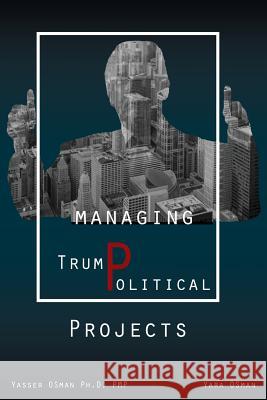Managing TrumPolitical Projects » książka
Managing TrumPolitical Projects
ISBN-13: 9781970024661 / Angielski / Miękka / 2017 / 148 str.
Corrupt politicians and businessmen have been using construction projects to funnel money to secret projects since the first iron shovels broke ground. Yet today, throughout the world, there is little if any protection from it. In many countries, governments themselves don't just ignore these affairs. They sponsor them.Individual project managers - hired to manage a project's official goals - often find themselves in an impossible dilemma. Blow the whistle when no one will come to their aid, or try to manage the project as best they can while half their budget goes elsewhere. Following their first book, Buildings, Projects, and Babies, the authors - an experienced manager of international mega-projects and a talented architectural designer - offer their own unique solutions: help for project managers in identifying signs of corruption; new perspectives on the choices facing their colleagues in the management of such projects; and - more importantly - a call for establishment of a federal agency responsible for investigating and prosecuting corruption in national and international projects. While the global economy makes it difficult to stop corruption in much of the world, the authors believe the United States is still the last best hope for a solution. But given current trends in international business and governance, the time for solving this problem is short. And the time to act is now.
Corrupt politicians and businessmen have been using construction projects to funnel money to secret projects since the first iron shovels broke ground. Yet today, throughout the world, there is little if any protection from it. In many countries, governments themselves don’t just ignore these affairs. They sponsor them.Individual project managers – hired to manage a project’s official goals – often find themselves in an impossible dilemma. Blow the whistle when no one will come to their aid, or try to manage the project as best they can while half their budget goes elsewhere. Following their first book, Buildings, Projects, and Babies, the authors – an experienced manager of international mega-projects and a talented architectural designer – offer their own unique solutions: help for project managers in identifying signs of corruption; new perspectives on the choices facing their colleagues in the management of such projects; and – more importantly – a call for establishment of a federal agency responsible for investigating and prosecuting corruption in national and international projects. While the global economy makes it difficult to stop corruption in much of the world, the authors believe the United States is still the last best hope for a solution. But given current trends in international business and governance, the time for solving this problem is short. And the time to act is now.











